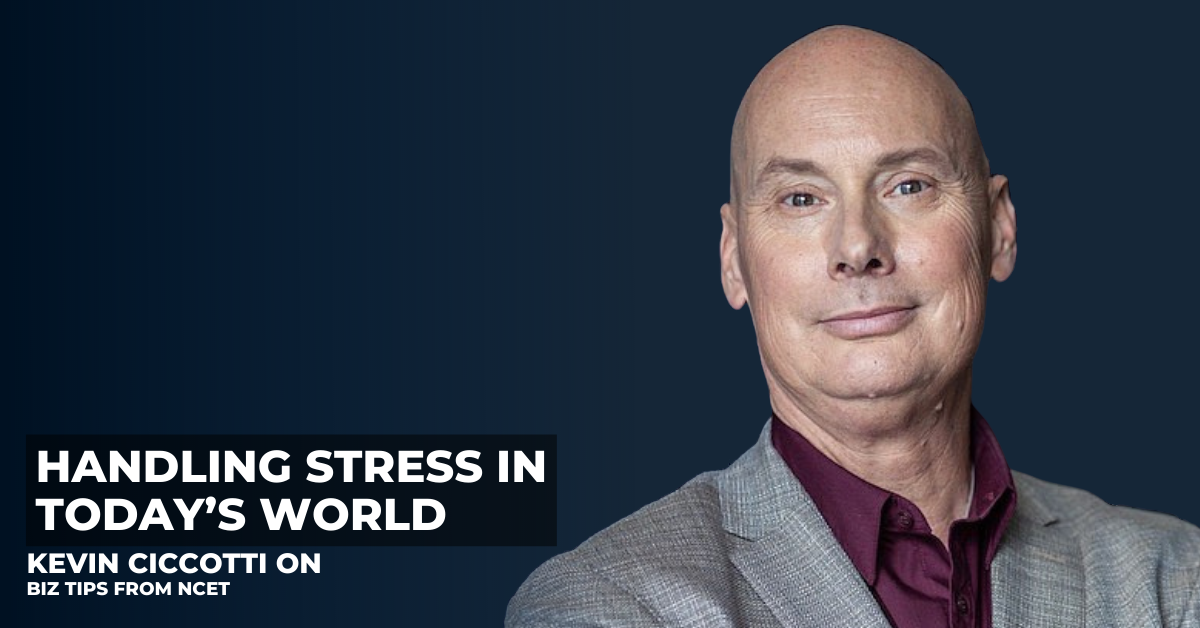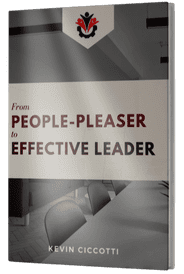|
Father’s Day is more than just a date on the calendar; it’s a day dedicated to celebrating the incredible men who shape our lives, teach us valuable lessons, and lead by example. Whether it’s your biological father, stepfather, grandfather, or a father figure, this special day offers an opportunity to express gratitude for their unwavering support and guidance.
The Importance of Fatherhood in Leadership Fatherhood and leadership share many common traits. Both roles require patience, understanding, and the ability to inspire others. As a father and leader, one must wear many hats—mentor, protector, provider, and confidant. Fathers, much like effective leaders, have the unique ability to influence and shape the future through their actions and words. In the realm of leadership, emotional intelligence plays a crucial role. Fathers often demonstrate this by showing empathy, understanding the emotions of their children, and responding with care and support. These skills are essential for creating strong, trusting relationships both at home and in the workplace. Practical Ways to Celebrate Father’s Day
Lessons in Leadership from Fatherhood Fathers impart countless lessons that can be applied to leadership. Here are a few key takeaways:
Father’s Day is an opportunity to celebrate and honor the men who have played pivotal roles in our lives. It’s a day to reflect on the invaluable lessons they’ve taught us and to express our gratitude for their unwavering support. By acknowledging and celebrating the fathers in our lives, we not only strengthen our family bonds but also reinforce the principles of effective leadership that they embody. As we honor our fathers, let us remember that their influence extends far beyond the home. The qualities they instill in us—integrity, compassion, and resilience—are the very traits that make great leaders. Happy Father’s Day to all the amazing dads out there! Your legacy of leadership is deeply appreciated and celebrated. Mother’s Day is a special occasion dedicated to honoring the women who have nurtured, guided, and inspired us throughout our lives. Whether it’s your mother, stepmother, grandmother, or a maternal figure, this day is a time to express our heartfelt gratitude for their unwavering love and support.
The Role of Mothers in Leadership Mothers are often the unsung heroes who balance multiple roles with grace and resilience. They embody the essence of leadership through their ability to manage households, careers, and communities. The qualities that make them exceptional—empathy, patience, and strength—are also the hallmarks of effective leaders. One of the key traits of both great mothers and great leaders is emotional intelligence. Mothers naturally understand and respond to the emotional needs of their children, fostering an environment of trust and support. This ability to connect on a deep emotional level is equally crucial in leadership, helping to build strong, cohesive teams. Creative Ways to Celebrate Mother’s Day
Leadership Lessons from Motherhood Mothers teach us invaluable lessons that can be applied to leadership. Here are a few key insights:
Mother’s Day is an opportunity to honor and celebrate the incredible women who have played pivotal roles in our lives. It’s a day to reflect on the lessons they’ve taught us and to express our gratitude for their unconditional love and support. By recognizing and celebrating the mothers in our lives, we not only strengthen our family bonds but also highlight the powerful leadership qualities they embody. As we celebrate Mother’s Day, let us remember that the influence of mothers extends beyond the home. The qualities they instill in us—empathy, resilience, and the ability to balance multiple roles—are the very traits that make exceptional leaders. Happy Mother’s Day to all the amazing moms out there! Your love, wisdom, and leadership are deeply appreciated and celebrated. For the full article on Northern Nevada Business Weekly Click Here With all that we’ve experienced over the last two years, I don’t think anyone would deny that we could all use just a little more laughter in our lives. But what about more laughter at work? I think most of us would agree that laughter feels good and is good for us. So why shouldn’t it be part of our daily work life?
Right about now you might be thinking, “what is there to laugh about, Mr. Comedian?” Well, I think we can always find something to laugh about – even under the most difficult of circumstances. If anything, the lack of humor in troubling times only makes those times seem worse. And believe me, I’ve been someone who has taken my own life way too seriously and suffered from it. So, let’s start with the basics, because I’m not advocating hiring a company comedian or holding open mic lunch hours to find the best humorist in the company. Humor is simply having two (or more) divergent or unrelated thoughts connect in new and unexpected ways. It’s the element of surprise. And our brains love novelty. When it comes to humor there are many benefits for us. Increased well-being, higher productivity, reduced stress, etc. Let’s look at a few of the most prominent ones. Humor creates an environment of light-heartedness and provides a sense of perspective that can help dissolve tension and protect us from stress. When we learn to laugh in tough times, it provides us with the ability to overcome our challenges and persevere. Research suggests that humor leaves us feeling happier and with a higher sense of job satisfaction. I think we can all agree that 2020 was not, shall we say, a great year. But if you look around at the people you know, there are almost certainly more than a few that seemed to navigate the past year seemingly with little or no difficulty. How did they do it? Are there some people who are completely unaffected by outside circumstances? I certainly don’t believe that’s the case. In my opinion it has everything to do with their mindset. And in this post I’m going to share some of the most profound truths I’ve learned over the last two decades about the importance of building a strong mindset. I guess the first place to begin is here: what is mindset? Simply put, mindset is a collection of thoughts, beliefs, and attitudes that affects how we think, feel and act. It affects how we see ourselves, how we see others, and how we see the world around us; it even determines what we believe is possible in terms of success, health, happiness, relationships, etc.. In short, mindset is everything. If I asked you about your current mindset what would you say?
How you think about these things will determine the course of your life. Truth #1: Our lives are always moving in the direction of our strongest thoughts. What we think shapes who we are. If that’s true, then why do we spend so little time working on mindset? We will spend hours and hours in a gym or doing some other form of exercise in order to build an outward body that we’re happy with. How much time do we spend building our inner body, our mindset? If you’re like I used to be, the answer might be not much time at all. And one of the main reasons we don’t spend much time working on it, is because we simply become accustomed to our own way of thinking. I hope to give you some reasons why this might not be the best strategy. You see, there are two very basic mindsets that people tend to cling to. One is the fixed mindset. People are the way they are, things are the way they are, we can’t change ourselves or our mindset. Our talents and abilities are set in stone - you either have them or you don’t. The other is the growth mindset. Everything is pliable. Thoughts, beliefs, actions, the world around me... anything can change and my skills and talents can grow if enough effort and/or repetition is applied to it. Carol Dweck, P.hD., wrote about these two mindsets in her book, “Mindset, The New Psychology of Success.” In fact, she goes as far as to say that your mindset explains how you become optimistic or pessimistic, that it shapes our goals, our attitudes toward work and relationships, how we raise our kids, and ultimately whether or not we fulfill our potential. When you cultivate a strong mindset, you’re able to create a positive, supportive, growth-oriented narrative. With a weak mindset, you will most often find yourself at the mercy of negative thoughts, emotions, and experiences. Mindset can be taught and learned. It’s a skill, and like any other skill, in order to get better at it, we must engage in repetition. What we repeatedly do, we become. Let’s take a look at the characteristics of a weak vs strong mindset.
It takes effort to change our mindset, and there are many things that can get in the way. We have to acknowledge the things that get in the way, or we ignore them at our own peril.
Start becoming aware of your state of being; where you put your attention, how you spend your time, what you put in your body. To cultivate an unshakable mindset, you have to prepare all parts of you. They all work together. Truth #2: The human mind, left unattended, will always go negative. It’s part of our primitive wiring to keep us safe. One thing you need to know when working to change your mindset is this: every thought is a pathway. A different way of saying it is “Where focus goes, energy flows.” Negative thoughts keep you stuck in negative experiences. From the moment we wake up, our minds begin thinking, processing, and worrying. Most people don’t have control over these thoughts; they just happen whether we like them or not. Then as we go through the day we continue to fill our minds with more input from sources that probably aren’t the most positive. We have to be more conscious of what we’re letting into our minds. There is a concept in neuroscience called neuroplasticity. The basic premise is this: we can change how we think, feel, and act - and that as we do, parts of our brain actually change in size and shape. There are many studies over the years that reinforce this concept. As you think, so shall you become. We are what we repeatedly do. Neuroscientists have a saying: the neurons that fire together, wire together. And the more often we hold onto the same patterns of thinking, the stronger that bond becomes and the more difficult it can be to change. But with repetition, we can form new neural pathways, and over time we strengthen them through repeating the new behaviors. The old ones weaken, the new become stronger. Truth #3: Our brains are designed to find the path of least resistance. This means that many times throughout the day we will go on autopilot.Our minds are constantly flowing with thoughts. Sometimes we are intentionally thinking about something (like a task at hand, something that we have to do, or about something that we’ve recently experienced). Other thoughts appear suddenly and without any effort from ourselves. Have you ever been doing something and suddenly a thought pops in your head? These are automatic thoughts. Automatic thoughts are often influenced by our view of ourselves, others, and the world. Moreover, there is an interactive relationship between our thoughts, feelings, and actions. Our brains crave certainty, predictability. Once a pathway is established, it’s easiest to let it continue - even if that thought pattern isn’t good for us. And the main problem with that is this: in the long term, you cannot out-behave your thinking. In the business world, there’s an old adage called the Peter Principle, that says people rise to their level of incompetence. But I believe there’s something much more powerful at work in our lives, and that is that “People rise to their level of conditioning!” And the way you think is 100% a result of your conditioning in life. You may be asking yourself some questions right about now. So where do I begin? And how? Will it work? Is it too difficult? Is it too late, am I too old? Well, there’s an old proverb that says “The best time to plant a tree is 20 years ago. And the next best time is right now.” You need to know is this: simplicity is the key. Complexity is the enemy of execution. Don’t make it harder than it has to be. We have this funny way of thinking that says, “If it seems too easy, it won’t work.” Well, none of this is easy. It is simple, just not easy. Step 1: Awareness is a huge component of shifting your mindset. If you’re not aware of how you think, there is no pathway to change. Become aware of your state of being, what you’re thinking, what you’re putting into your body, how you use your time. You have to begin to elevate your awareness and get out of the rut of automatic thoughts
How I think determines how I feel. How I feel determines what I do. What I do determines what I become. Your thoughts are the story you’re telling yourself at any given moment. Become aware of the stories you’re telling yourself as you go through your day. Notice how you’re feeling in the moment (awareness) and then ask yourself, “What is the story I’m telling myself about this situation/event/person?” Challenge those thoughts. The truth is you’re in charge of your stories. If you don’t like the story you’re telling, change it. Step 2: Another huge component of shifting your mindset is your physical health. How are you sleeping? Do you get regular exercise/physical activity? What do you eat? How much alcohol do you consume regularly? Are you overwhelmed with activity both at work and at home? How exhausted are you at the end of each day? It’s almost impossible to have a healthy mind if you don’t have a healthy body. Move your body daily. Walk. Lift weights. Do yoga. Anything to elevate your heart rate and increase physical well-being. Exercise releases endorphins in the body that lead to feelings of positivity and happiness. Step 3: Another aspect of building a positive mindset is your spiritual connection. This isn’t about religion; it’s about being connected to nature, the universe, God, whatever you want to call it. There are a few ways to do that. Spend time in meditation and/or prayer. I’ll tell you that this one thing has had more impact on my mindset than almost anything else. I spend an hour minimum each day in prayer and meditation, and it sets my mind on a calm, positive pathway. I avoid social media, news, TV, or any other outside input until I’ve spent time cultivating a positive outlook. You can also spend time in nature. Hiking. Walking. Just being outdoors. Find something and do it regularly. Repetition is key in all of these areas. Step 4: Finally, you must become a master of meaning. We are creatures of meaning. Everything that happens in our lives we give meaning to. It’s how we make sense of the world around us. But know this - nothing in life has any meaning except the meaning that you give to it. Here’s the thing: as soon as you give a meaning to any event, that meaning becomes your experience. If you say, “That meeting was humiliating,” then you will feel humiliated. In his renowned book, Man’s Search for Meaning, author Viktor Frankl talks about the need for the human mind to assign meaning to everything that is occurring in our lives. Frankl was an Austrian-born Jewish psychiatrist who, along with his pregnant wife and parents, was imprisoned in Nazi concentration camps during World War II. While there, he noticed that some prisoners succumbed to the conditions while others were able to withstand the brutal conditions. He noted that those who were able to find meaning in their circumstances were the ones that thrived, or at the very least survived. He would later say, “Those who have a 'why' to live, can bear with almost any 'how'.” To me, the most powerful thing he says in the book is this: “Everything can be taken from a man but one thing: the last of the human freedoms—to choose one’s attitude in any given set of circumstances, to choose one’s own way.” And just as we need to begin to challenge our own thoughts, we also need to question the meaning we give to events. When we learn to master meaning, we gain true agency over our minds and true freedom over our lives. Ritual is the key: To cultivate this strong, positive mindset, it’s critical to establish daily rituals to support you. Just like getting in physical shape requires repeated trips to the gym, developing a strong mindset requires daily repetition and practice. Remember, “Repetition is the mother of skill.” My days are forever changed since I began doing this. I wake every morning, 7 days a week, at 5:30AM and spend the first hour in meditation and prayer. Then I move my body with some form of physical exercise. The difference these have made in my life is immeasurable. Mind. Body. Spirit. Commit to working on these and your mindset will change. And let me be clear about something. You’re going to “fail.” You’ll struggle, waver, have difficulties from time to time. Isn’t that how we learn any new skill? Don’t let that stop you. If anything, that should get you to double down on your effort, because it means your mind is actively resisting. You can push through that resistance. Whatever is in the way, is the way. All of this to say, mindset is the most important thing you can work on in your life. It drives every aspect of your life, and can make for a wonderful experience or one filled with suffering and negative emotions.
Enjoy Kevin Ciccotti's latest Recommended Reads for improving leadership skills:
|
Quit being an average leader! Take the FREE Leadership Assessment.Kevin Ciccotti, Human Factor FormulaHelping companies create sustainable, effective teams that are committed to the success of their projects, the organization, and the individuals with whom they work |
Human Factor Formula, Inc.P.O. Box 17314
Reno, NV 89511 Connect with Kevin |
|
© 2014-2024 Human Factor Formula Inc. | Photography by Siddiqi Ray | ADA Compliance | Coaching Web Design





 RSS Feed
RSS Feed



